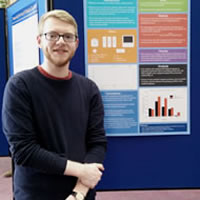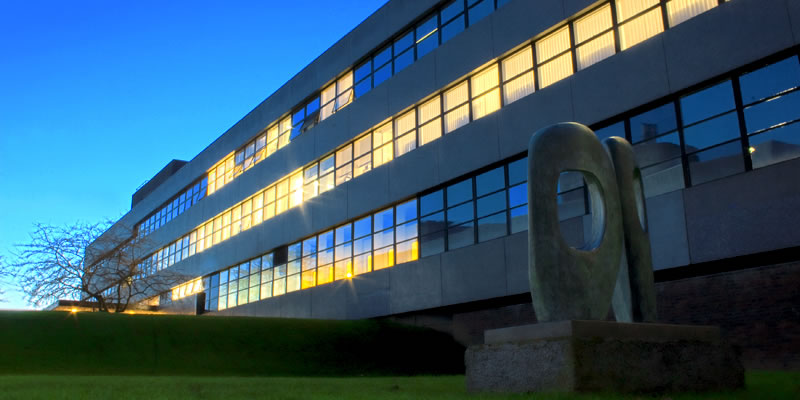In the first two years you’ll be introduced to fundamental areas of physics including special relativity and the foundational theories of quantum physics and electromagnetism. You’ll gain more in-depth knowledge as you progress through the degree, applying your learning in fields such as particle physics, atomic physics and cosmology. Your mathematical training will include the study of linear algebra, number theory, partial differential equations, vector calculus and general relativity.
In the fourth year you’ll be able to choose from a wide range of optional modules in mathematics and physics. They cover a breadth of topics, including advanced study of gravitational waves and general relativity, as well as acoustics, photonics and quantum physics. You could deepen your physics-related mathematics knowledge or broaden your studies into applied maths fields, such as statistics or the mathematics of finance.
You’ll also have the opportunity to pursue your own interests by choosing a topic for your fourth-year research project. The breadth of our academics' interests, across mathematics and physics, means you’ll have a wide choice of research projects available to you. Some recent examples include:
- exploring the Higgs boson at the Large Hadron Collider and International Linear Collider
- supersymmetric quantum mechanics
- how much of the cosmological constant is fake?
View the 2019/20 programme specification document for this course
View the 2020/21 programme specification document for this course
Research-grade facilities
You’ll use state-of-the-art equipment in our teaching laboratories, with guidance from dedicated technicians who are there to support your experimental work. The University’s supercomputer IRIDIS – one of the most powerful in the world – is available for fourth-year research project work.
A top-five research department
Gain your physics degree from one of the top five Russell Group departments for physics and astronomy research (REF 2014). Our research reputation is built on a track record of discovery and we remain on the frontline of new developments.
Outstanding research in mathematics will also feed into your degree. In the 2014 REF, 100% of research conducted by the Mathematical Sciences department was rated as internationally excellent or of world-leading quality for its impact and for the research environment.
You’ll learn from the academics who are conducting this high-calibre research. You could even get involved in STAG’s research yourself by applying for a summer placement on one their projects – ideal if you want to gain experience in preparation for PhD-level study.
Accreditation
Our MPhys Physics programmes are accredited by the Institute of Physics
Programme Structure
In years one and two you’ll study core physics and mathematics modules, gaining fundamental theoretical knowledge and experimental skills. Year three includes one optional module – you can choose to enhance your skills in either experimental physics or computing. In the fourth year you’ll be able to choose four modules from a wide range. As well as physics and mathematics modules, the options throughout the years include innovative cross-disciplinary modules on topics such as law, business and bioengineering.
All our students study the same core modules in years one and two, which means it’s possible to switch to one of our other BSc or MPhys physics programmes up to the end of the second year, provided you have taken the required optional modules.
To Apply
All undergraduate applications for Physics and Astronomy should be made online through the Universities and Colleges Admissions Service (UCAS).
Find out how to apply and get further details about UCAS' website, phone and contact details.
Key Facts
The Physics with Mathematics degree is taught in partnership with the University's highly regarded Mathematical Sciences department
Choose to study the areas of mathematics and physics that interest you, such as gravitational waves, quantum physics and general relativity
Your skills will open the door to a wide range of careers, from crytography to finance. The degree is also a firm foundation for PhD-level study.


